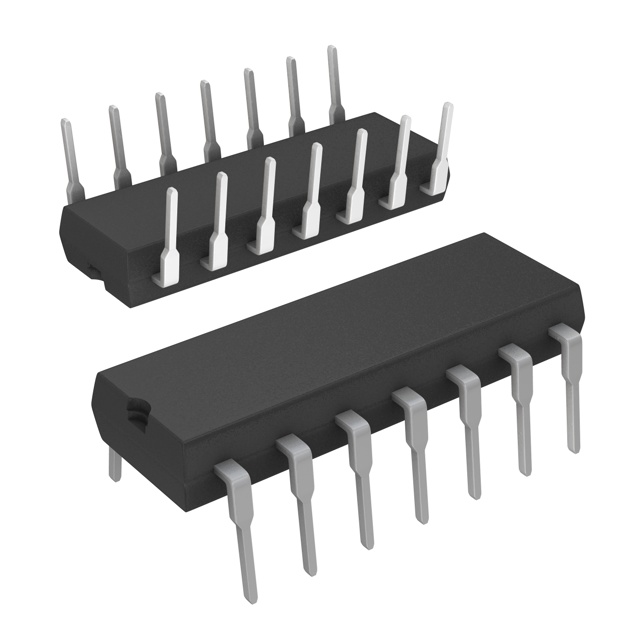In Stock : 0
Please send RFQ , we will respond immediately.









NLVVHC1GT08DFT2 Specifications
-
TypeParameter
-
Package / Case5-TSSOP, SC-70-5, SOT-353
-
Supplier Device PackageSC-88A (SC-70-5/SOT-353)
-
Mounting TypeSurface Mount
-
Operating Temperature-55°C ~ 125°C
-
Max Propagation Delay @ V, Max CL7.9ns @ 5V, 50pF
-
Input Logic Level - High1.4V ~ 2V
-
Input Logic Level - Low0.53V ~ 0.8V
-
Current - Output High, Low8mA, 8mA
-
Current - Quiescent (Max)1 µA
-
Voltage - Supply3V ~ 5.5V
-
Features-
-
Number of Inputs2
-
Number of Circuits1
-
Logic TypeAND Gate
-
PackagingTape & Reel (TR)
-
Product StatusObsolete
-
SeriesAutomotive, AEC-Q100, 74VHC
The NLVVHC1GT08DFT2 is a specific integrated circuit chip that belongs to the VHC (Very High-Speed CMOS) logic family. It is a single 2-input AND gate chip. Here are some advantages and application scenarios of this chip:Advantages: 1. High-speed operation: The VHC logic family is known for its high-speed operation, making it suitable for applications that require fast switching and data processing. 2. Low power consumption: The NLVVHC1GT08DFT2 chip is designed to consume low power, making it energy-efficient and suitable for battery-powered devices. 3. Wide supply voltage range: It can operate within a wide supply voltage range, typically from 2.0V to 5.5V, providing flexibility in various applications. 4. Small form factor: The chip comes in a small form factor package, making it suitable for space-constrained designs.Application scenarios: 1. Digital logic circuits: The NLVVHC1GT08DFT2 chip can be used in various digital logic circuits, such as combinational logic designs, arithmetic circuits, and data processing units. 2. Microcontrollers and microprocessors: It can be used in microcontrollers and microprocessors to perform logical operations and interface with other components. 3. Communication systems: The chip can be used in communication systems for signal conditioning, data encoding/decoding, and protocol implementation. 4. Consumer electronics: It can be used in consumer electronic devices like smartphones, tablets, and wearable devices for various logic operations. 5. Industrial automation: The chip can be used in industrial automation systems for control and monitoring purposes, where high-speed and low power consumption are essential.It's important to note that the specific advantages and application scenarios may vary depending on the requirements and design considerations of a particular project.
NLVVHC1GT08DFT2 Relevant information

















